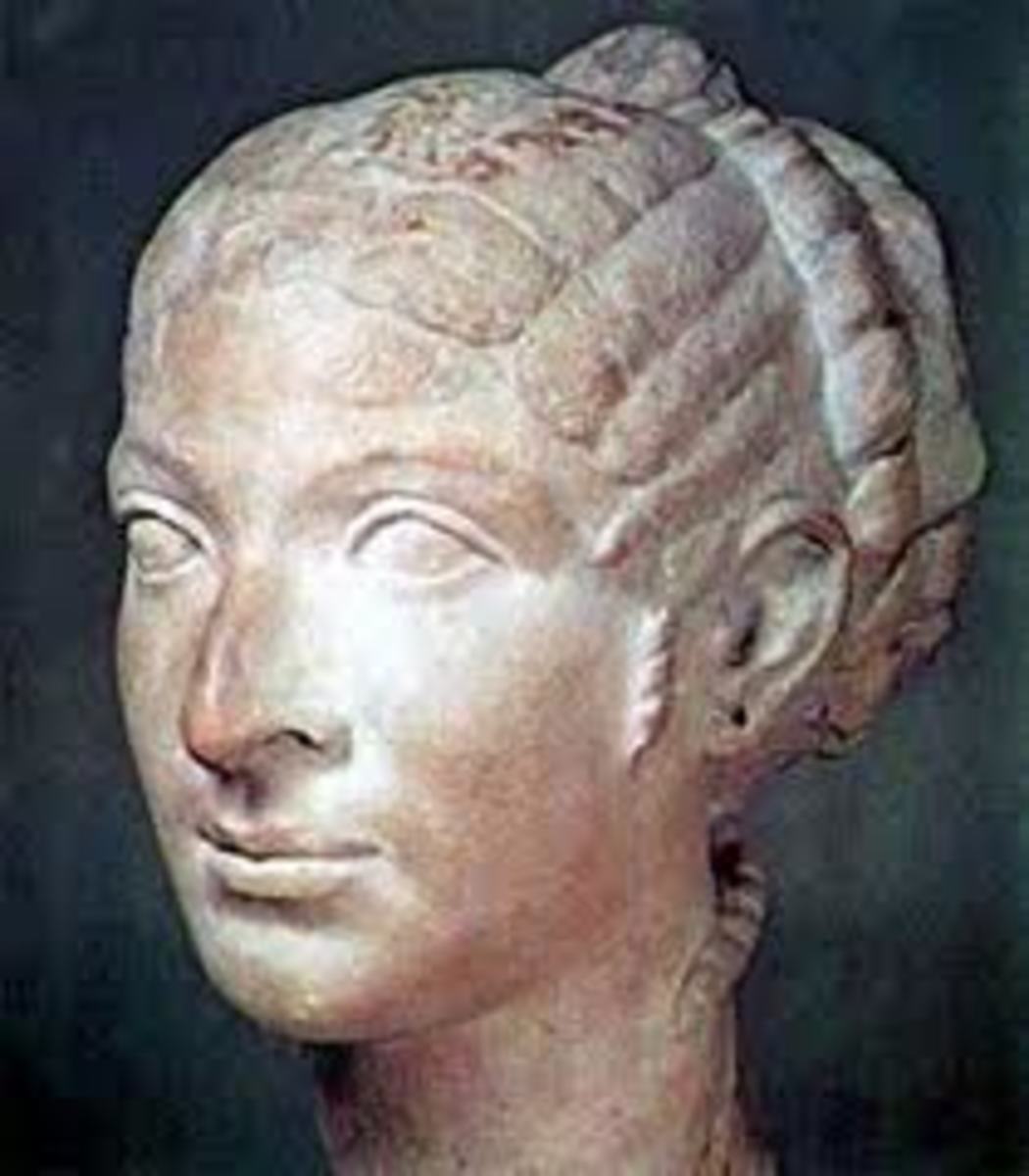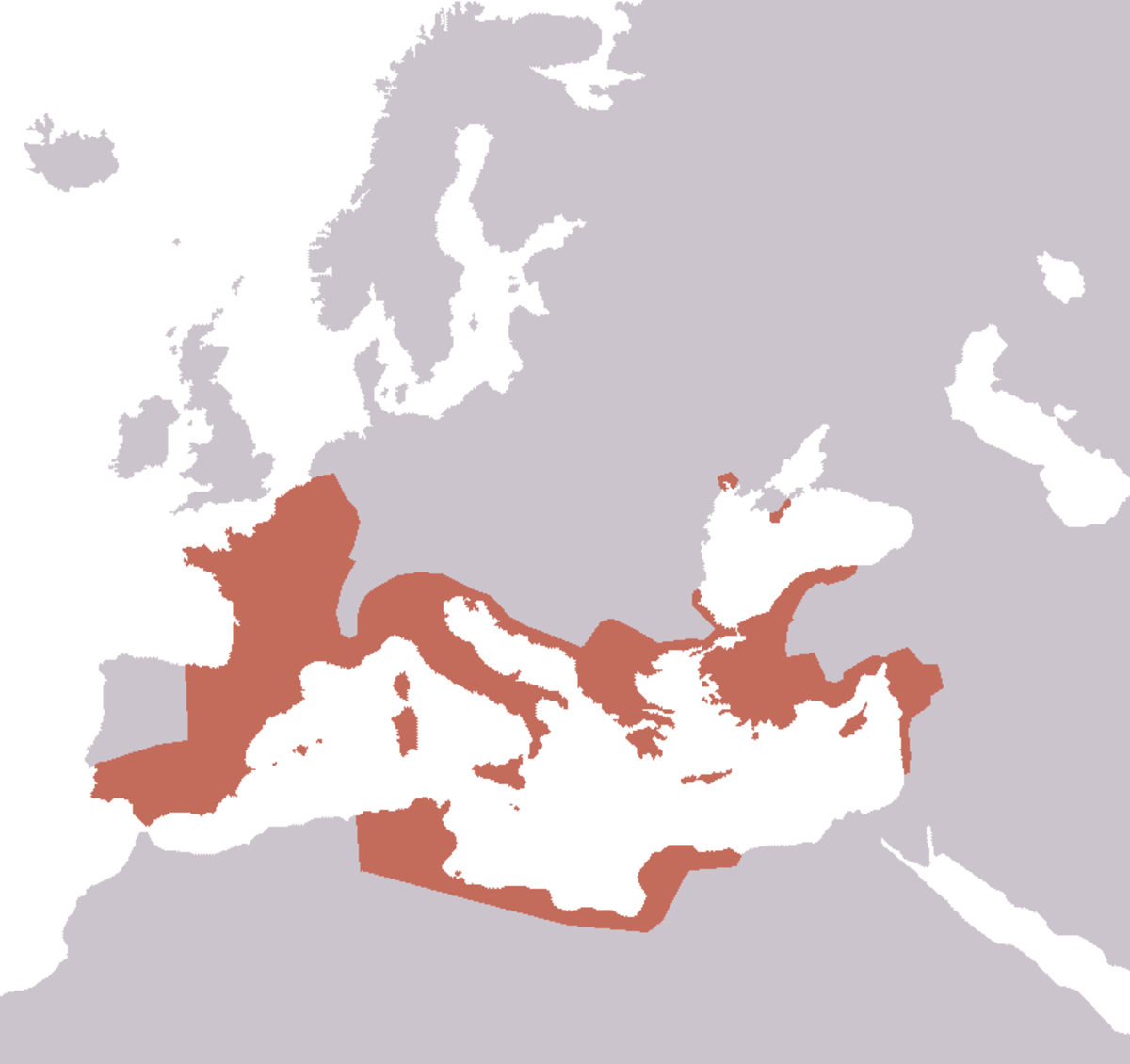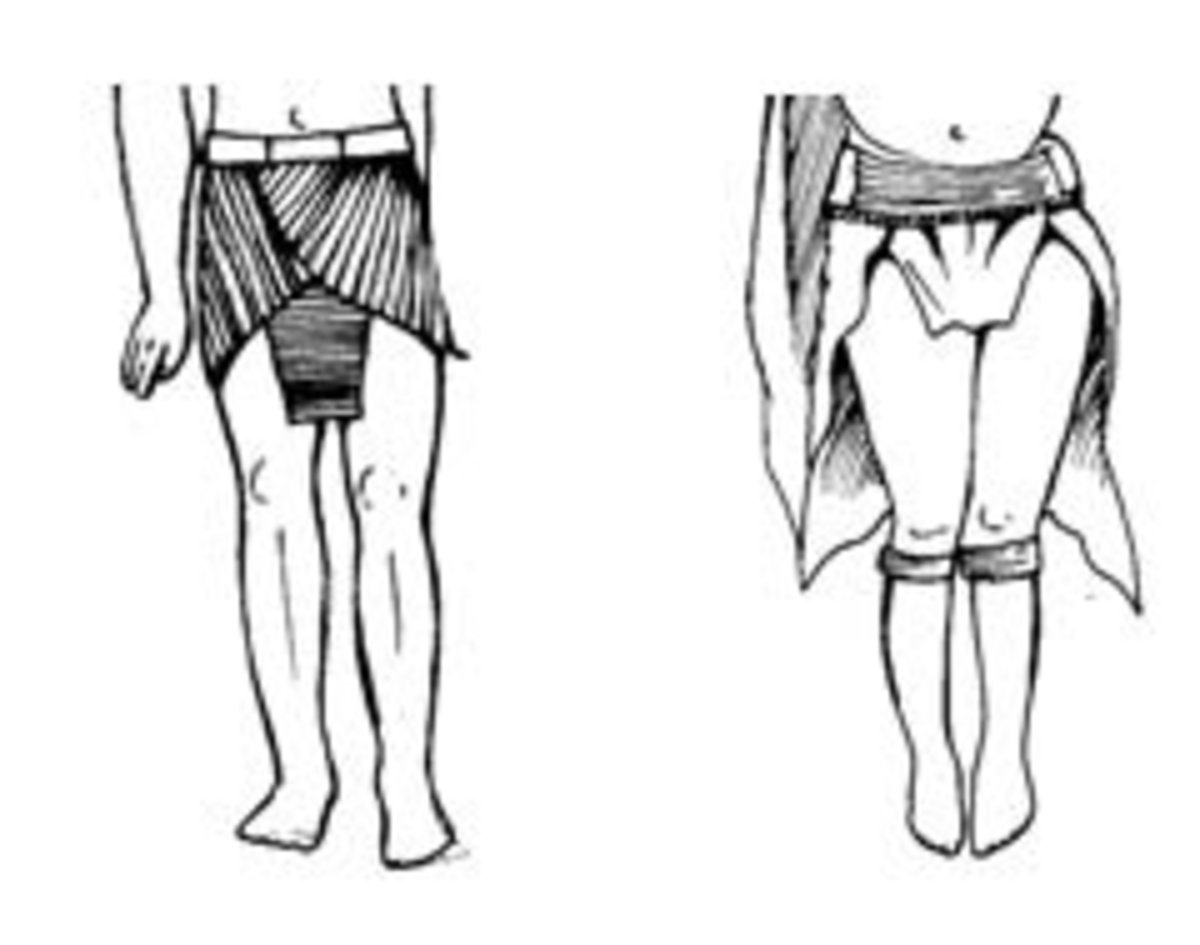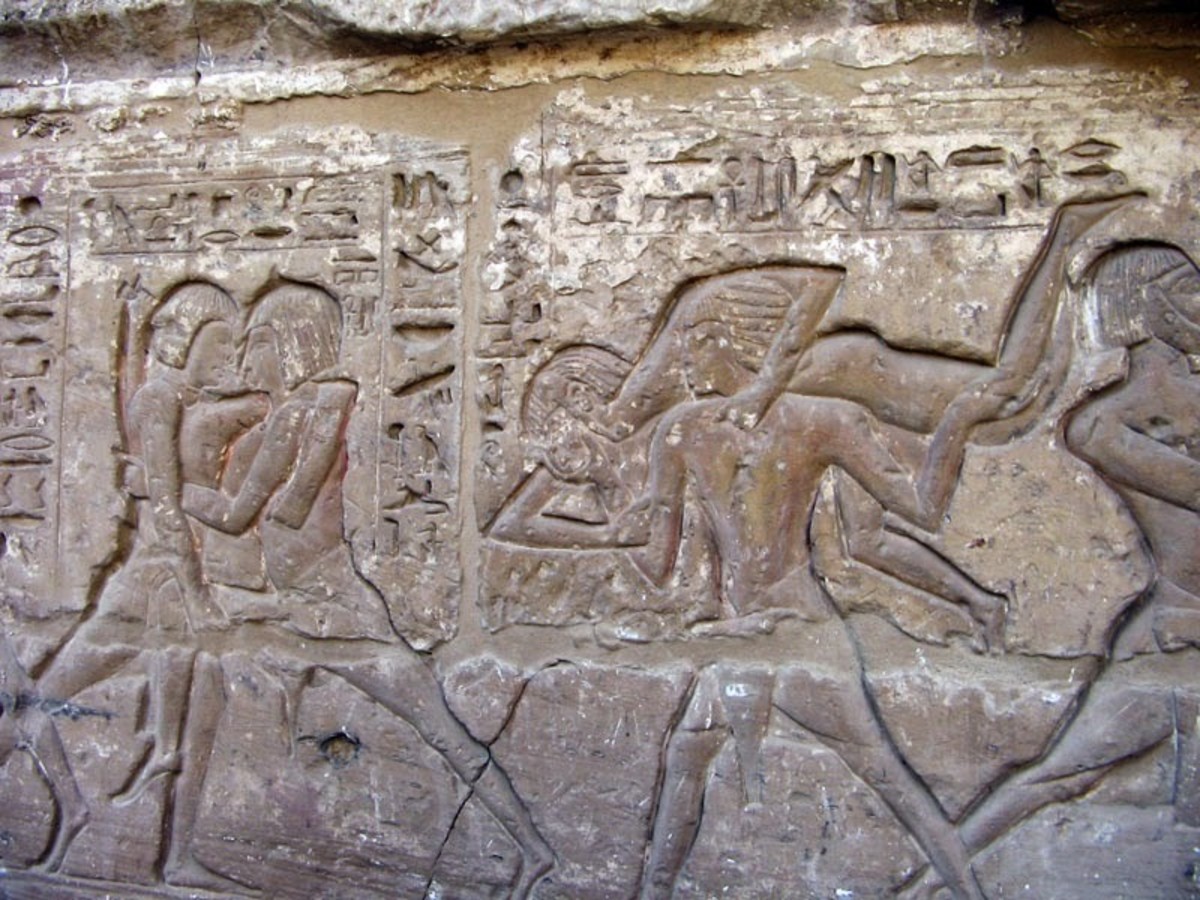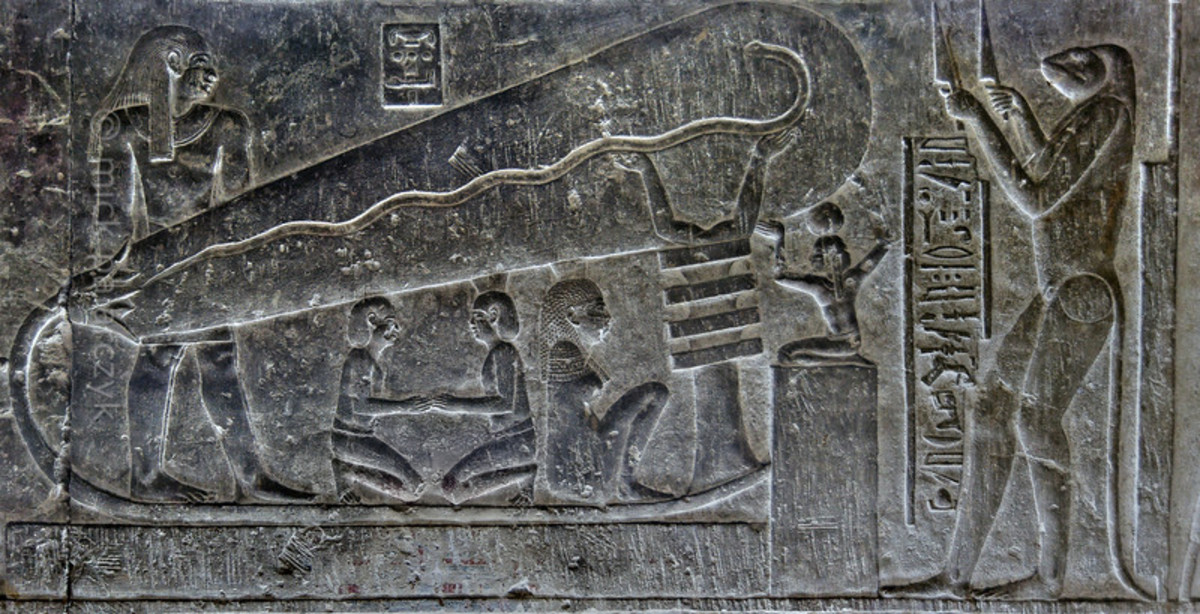Mark Antony
Mark Antony (82-30 B.C.) was a Roman triumvir and general. The Latin form of his name is Marcus Antonius. Because of his relationship with Cleopatra, his life has been romanticized by ancient biographers, by Shakespeare, and frequently by modern historians.
Antony, wild in his youth, was descended from a distinguished senatorial family. He early served as a cavalry commander with Gabinius, the governor of Syria, but he soon found a more suitable outlet for his energies with Julius Caesar and rapidly became a talented military commander. Several times he was placed in control of Italy while Caesar was busy elsewhere.
Antony was promoted to the highest ranks. He was quaestor in 51, and in 49, the year of civil war between Pompey and Caesar, he was tribune of the plebs. Antony supported Caesar in the Senate and fled to his camp. In 48 he fought in the Italian campaign and was made regent of Italy, and in 47 he commanded the left wing at Pharsalus.
At the time of Caesar's assassination in 44 B.C., Antony was consul and found himself in control of the machinery of government. Thereafter he became involved in a quarrel with the senatorial faction led by Cicero and with Octavian, who had been adopted by Caesar, much to Antony's dismay.
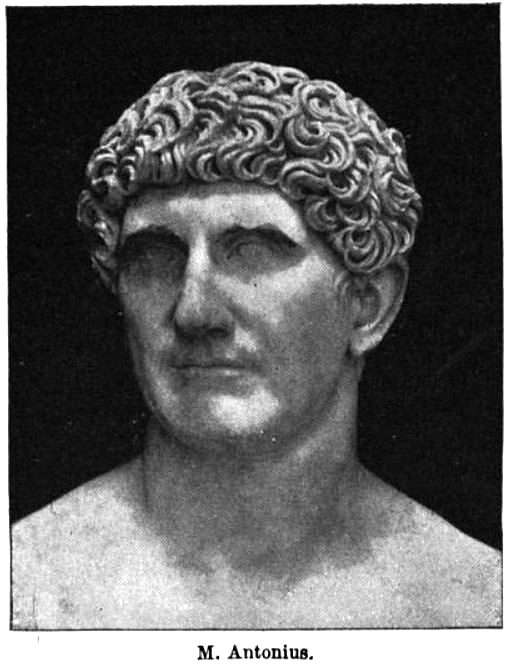
The Triumvirate
The result of this struggle was a victory for the senatorial armies. After Antony's defeat at Mutina in 43 B.C., Octavian fell out with Cicero and allied with Antony who had, in the meantime, united his armies with those of Lepidus in Gaul. Late in 43 B.C. the three men marched on Rome and forced passage of a law naming them triumvirs for the purpose of reorganizing the state. In the proscription that followed, Cicero and many other leading men in Rome were executed.
Sharing the command, Antony and Octavian went to Greece in pursuit of Brutus and Cassius, Caesar's assassins, whom they defeated at the Battle of Philippi in 42 B.C. Antony remained in the East to settle troubled conditions and to prepare for an invasion of Parthia, a kingdom east of the Euphrates River. Needing Egyptian support for this campaign, he summoned Cleopatra, Egypt's queen, to Tarsus. She became his mistress, and he spent the winter of 41 B.C. with her in Egypt. He soon left her, however, and they were not to see each other again for four years.
Relations between Antony and Octavian had meanwhile become so strained that they decided to meet at Brundistum in Italy in 40 B.C. There Antony took the Eastern provinces and gave the Western ones to Octavian and Lepidus. Antony also agreed to marry Octavia, Octavian's sister.
Antony then returned to the East. After settling various frontier problems, he went to Syria in 37 B.C., intent on the invasion of Parthia in the following year. Again he summoned Cleopatra and made Egypt stronger by his famous "donation" of portions of Syria, the Phoenician coast, and Cyprus to Cleopatra. Perhaps in 36 B.C. (the date is disputed) he married her, although he had not divorced Octavia, who was still his legal wife in Roman eyes.
The invasion of Parthia, which Cleopatra opposed, was unsuccessful, and Antony had to employ all his military genius to withdraw his army. In Italy, Octavian circulated false rumors, claiming that Antony was dominated by an Oriental queen whom he intended to make queen of Rome. Octavian became so aggressive that, in 33 B.C., Antony publicly divorced Octavia, and the Romans prepared for a showdown.
In 31 B.C. the forces of Antony and Cleopatra met those of Octavian in the naval Battle of Actium. During the course of the battle Cleopatra fled to Egypt, followed by Antony. There, in the following year, they both committed suicide.
Although it seems clear that Antony had some affection for Cleopatra, he did not throw away his career and his life out of blind love for his mistress. Political factors conditioned their relationship. To control the Eastern province, Antony needed the support of Egypt. To make Egypt strong again, Cleopatra needed the support of Antony. But neither of them was a match for Octavian.
This content is accurate and true to the best of the author’s knowledge and is not meant to substitute for formal and individualized advice from a qualified professional.
© 2009 Historia

